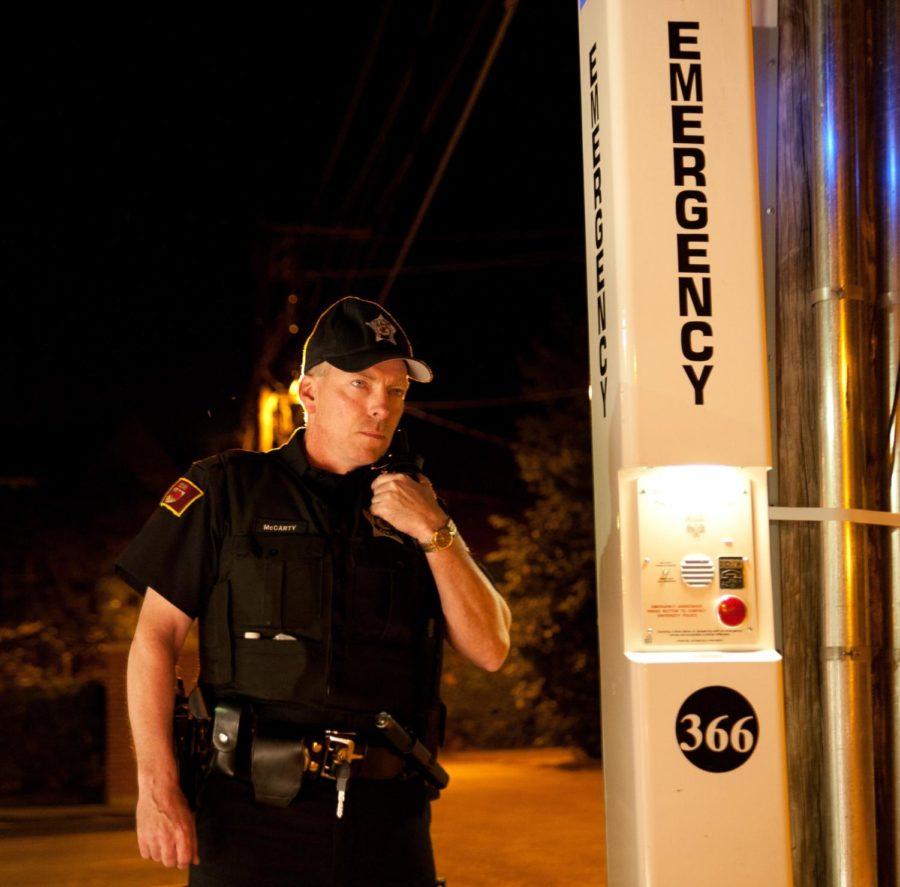Assessors from the Commission on Accreditation for Law Enforcement Agencies (CALEA) will determine whether to renew the University of Chicago Police Department (UCPD)’s CALEA certification in a process that begins on April 12, per a press release by the UCPD.
As part of CALEA’s review process, the public is invited to speak to accreditation assessors by calling (773) 834–4755 between 12:30 p.m. and 2:30 p.m. on Tuesday, April 13. Calls will be capped at five minutes, according to the press release.
A virtual information forum, to be held by CALEA assessors at 3 p.m. on the same day, will also provide the public with an opportunity to share comments. In its press release, the UCPD asked community members to register ahead of time by emailing Ernest Knight, UCPD commander of professional standards, at knighte@uchicago.edu.
UCPD’s press release stated that the assessment process will involve “examining all aspects of the UCPD’s policies and procedures, management, operations, and support services.” The UCPD is the only university police department in the state of Illinois to be certified by CALEA, per the press release.
All 459 of CALEA’s law enforcement standards must be met in order to receive the CALEA Advanced Law Enforcement Accreditation designation, while only 181 are required for CALEA Law Enforcement Accreditation. The University of Chicago is currently accredited under the Advanced Law Enforcement Accreditation.
CALEA requires agencies to meet a variety of standards, ranging from regulations about the oath of office to policies about field conduct, such as “vascular neck restrictions” (4.1.6) or “mental health issues” (41.2.7).
To achieve CALEA accreditation, a university police department must first perform a “self-assessment” to ensure that its policies meet CALEA standards. An independent CALEA compliance service member confirms this through a “site-based assessment,” and the agency’s Board of Commissioners issues the final credentialing.
Thereafter, reaccreditation with CALEA occurs via a four-year cycle. During the lifespan of the credential, CALEA performs a web-based annual assessment of the department each year to ensure compliance. In the fourth year, a site-based assessment must be conducted before reaccreditation is granted. The UCPD was first accredited in 2014 and achieved reaccreditation in July 2017.
The UCPD first achieved CALEA certification when it expanded its operations to become a full-service police department, enabling its officers to perform duties like detaining people after arrest without involving the Chicago Police Department. CALEA, which bills itself as “the gold standard in public safety,” is a nonprofit organization founded in 1979 by four major law enforcement associations, which appoint its leadership, primarily made up of current and former members of law enforcement. UCPD’s assessment will be conducted by members of the police departments at the University of Maryland and the University of Alabama at Birmingham.
In the past, student activists have raised concerns about the UCPD at CALEA’s open forums. At the 2014 forum, members of the Coalition for Equitable Policing, a student group, criticized the UCPD for perceived standards violations, including incidents of racial profiling and unprofessionalism.
In a statement issued in 2017, members of Students Working Against Prisons said, “We are also troubled that CALEA's standards are not available on its website and that the public input process has been poorly publicized. This lack of transparency and apparent disdain for public input render the accreditation process meaningless.”
Knight did not respond to The Maroon’s call for comment by the time of publication.










